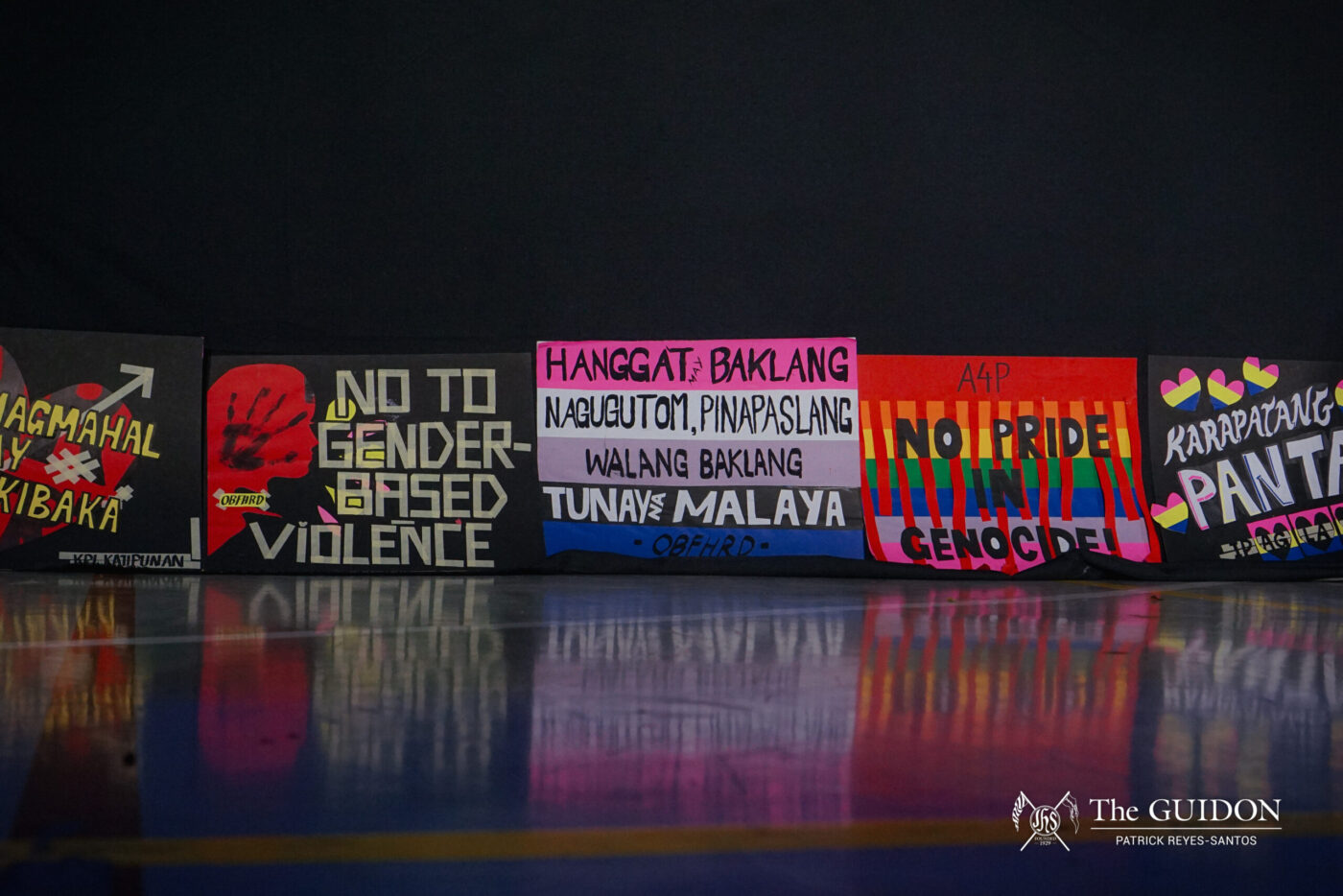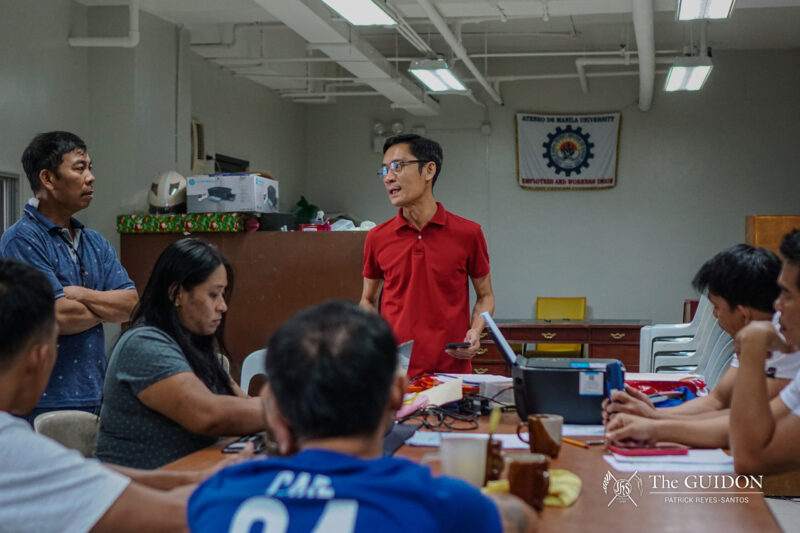HIGHLIGHTING THE political roots of Pride, this year’s One Big Pride (OBP) held a series of activities from October 4 to 28 that intersected with its theme of “Love and Liberation.” Such initiatives included educational talks, a film screening, and free testing for human immunodeficiency virus and sexually transmitted infection.
According to Sanggunian Commission on Gender Equality (CGE) Co-commissioners Cymbelline Ashley Bontogon and Isa De Los Santos, this year’s OBP theme serves as a reminder that Pride remains a form of protest.
Notably, OBP attendees were also exposed to political discourse, as advocates for causes—such as the protection of Bugsuk and Palestinian liberation—were given platforms to speak during the OBP Pride March and opening night.
With this year’s iteration, Bontogon and De Los Santos expressed their hopes to further the advocacy of inclusivity and empowerment by showcasing the social realities of LGBTQIA+ members in the University.
Inclusivity in pride
Apart from sociopolitical issues, Bontogon and De Los Santos shared that this year’s celebration also aimed to provide visibility for more LGBTQIA+ identities, such as lesbian, non-binary, and transgender individuals. Following this, a film screening and talkback session on Jennifer Laude’s case was held on October 18 to underscore the struggles of being a transgender.
Spotlighting different queer voices, OBP also introduced Bakliterati Quentuhan, the first LGBTQIA+ open-mic storytelling competition in the Philippines. The event featured Atenean undergraduates who shared personal stories about freedom in celebration of National Coming Out Day last October 11.
In line with this year’s Talakayang Alay sa Bayan, OBP also organized a talk bridging queer liberation with climate justice and environmental activism to emphasize the intersection of these critical movements.
De Los Santos and Bontogon hope that through these initiatives, attendees are reminded of the protestive roots of Pride.
Notably, OBP Opening Night attendee Nikolai Russegger (2 AB HI) pointed out the need for increased visibility for the entire queer community to combat its societal image that focuses only on cisgender gay men.
“The queer universe in Ateneo is pretty visible, but it’s not enough. […] We haven’t had much visibility for [other queers like] sapphics, trans people, intersex people, [and] ace people,” Russegger explained. With this, he expressed his appreciation for OBP’s Opening Night being able to provide platforms for more LGBTQIA+ identities.
Behind the advocacy
For this year’s celebration, the organizing team shared their struggles in regaining momentum following their involvement in the March of Women event. De Los Santos explained that the resumption of work was a slow process, as many members were coming from a period of rest and were still recovering from the demands of the previous initiative.
Compounding this challenge, the organizing team also noted their difficulties in engaging volunteers—with less than 20 members during the Intersession—and ensuring widespread involvement in the preparation process.
Bontogon added that aside from manpower, they also experienced setbacks in preparing for OBP due to a limited budget allocation. In particular, they stated that the funds provided were constrained by “bureaucratic processes” that limited how money could be distributed and used.
Pride in progress
Furthering the call for queer empowerment beyond One Big Pride, Bontogon mentioned that the CGE plans to cultivate inclusivity within the campus and improve the Council of Organizations of the Ateneo – Manila’s Safe Spaces Declaration.
Meanwhile, Russegger calls on the Ateneo administration for stronger lived name protection, specifically in academic platforms like Canvas. Likewise, Elle* (2 AB COM), who also attended the OBP Opening Night, emphasized the need to strengthen the support for the University Gender Hub (UGH) by including them in conversations that affect the queer community on campus.
Currently, the Ateneo has a Gender Policy that reminds all members of the University to “not discriminate on the basis of sex, gender, marital or parental status, sexual orientation, or gender identity or expression.”
While Russegger and Elle acknowledged these notable strides, they both asserted that there are more mechanisms that could be implemented to provide better support. “I would want [a] faster investigation and penalties for sexual harassment and discrimination, [and] gender-based violence on campus,” Russegger mentioned.
As OBP concludes, Bontogon and De Los Santos hope to have empowered attendees in navigating their struggles, particularly in the Philippine context and its diverse social realities.
They also shared their hope to highlight the presence of supportive groups and offices within the University that continue to advocate for safer spaces, such as the CGE, UGH, and the Sanggunian Commission on Anti-Sexual Misconduct and Violence.
*Editor’s Note: The name of the interviewee was changed to protect their identity and privacy.







